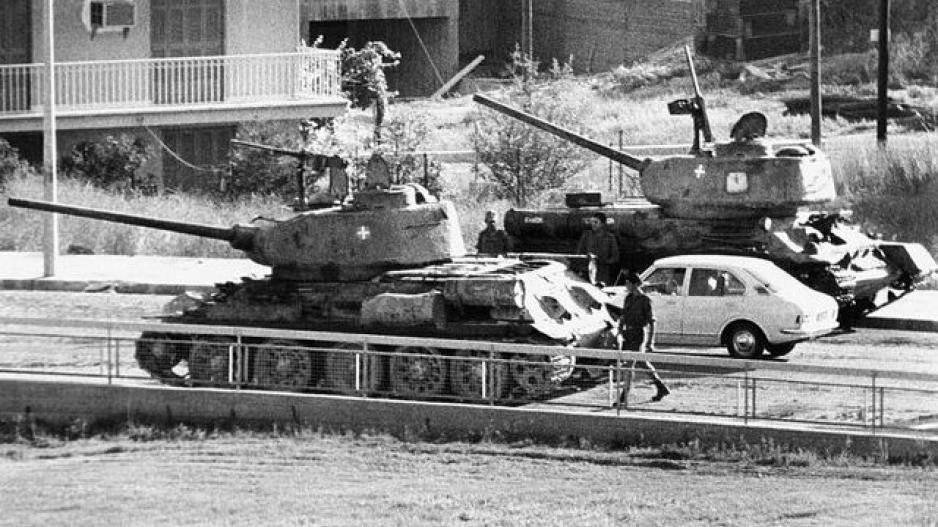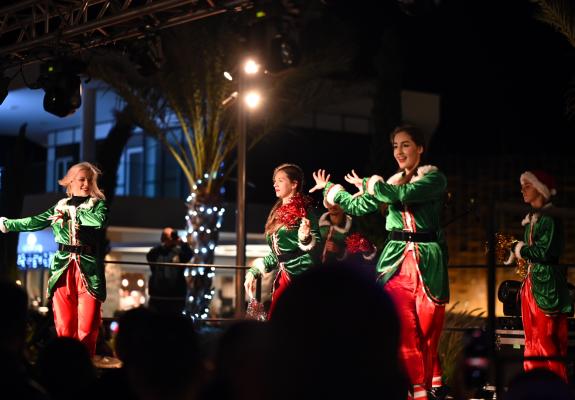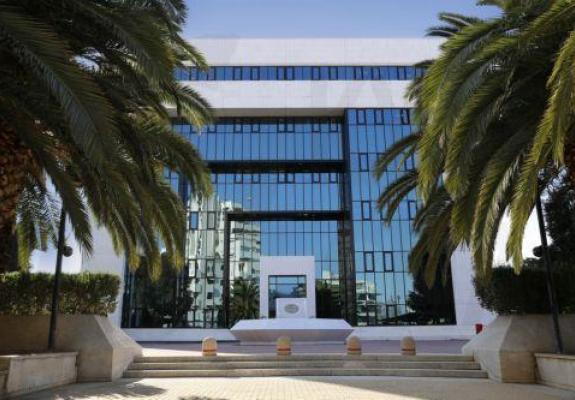50 Years Since the Treacherous Coup of July 15, 1974, in Cyprus
A Retrospective on the Events Leading to the Division of Cyprus
Today marks 50 years since the treacherous coup of July 15, 1974, orchestrated by the Athens junta and executed with the involvement of EOKA B in Cyprus.
With Cyprus's defense weakened by the withdrawal of the Greek Division and internal conflicts from 1971-1974, the junta and its local collaborators aimed to overthrow the legitimate President of the Republic, Makarios III, by deploying military forces on the morning of July 15.
Their plans ultimately failed, as Makarios survived and returned to Cyprus after a few months abroad to resume his presidential duties. However, the heinous actions against Cyprus's constitutional order led to a second crime against the Cypriot people. Ankara used the coup as a pretext to invade the island on July 20, 1974, bringing death and displacement.
The countdown to the division of Cyprus began in 1967 when the military dictatorship seized power in Greece. Relations between this regime and President Makarios III of Cyprus were strained.
With the signal "Alexander has entered the hospital," Brigadier M. Georgitsis, head of Greek military forces in Cyprus, announced to the junta leadership the start of the coup against the democratically elected President of Cyprus on the morning of July 15, 1974.
Early on Monday, July 15, 1974, Makarios was returning to the Presidential Palace in Nicosia from his weekend residence in Troodos. During the coup, Makarios was receiving a group of Greek-Egyptian children.
As gunfire intensified and the Presidential Palace was bombarded by National Guard tanks, Makarios first ensured the safety of his young visitors before escaping through the only unguarded passage to the west of the Palace. He sought refuge at Kykkos Monastery and then in Paphos. Despite the coup plotters declaring Makarios dead via the state broadcaster, he was alive and addressed the people from an improvised radio station in Paphos:
"Greek Cypriot People! The voice you hear is familiar. You know who is speaking. I am Makarios. I am the one you elected to be your leader. I am not dead. I am alive. And I am with you, comrade and standard-bearer in the common struggle. The junta's coup has failed. I was their target, and as long as I live, the junta will not pass in Cyprus. The junta has decided to destroy Cyprus, to partition it. But they will not succeed. Resist the junta in every way. Do not be afraid. Join the legitimate forces of the state. The junta must not pass, and it will not pass. Now the fight is for everything."

Makarios boarded a British military aircraft and, via Malta, traveled to London, where on July 17, he met with British Prime Minister Harold Wilson and Foreign Secretary James Callaghan.
The United States called for the support of Cyprus's independence and urged all nations to do the same, while Secretary of State Henry Kissinger rejected a proposal to support the ousted Makarios regime.
Five days later, Turkey invaded Cyprus. In a two-phase invasion in July and August, despite UN Security Council appeals (Resolution 353 [1974]) and the swift restoration of constitutional order on the island, Turkey occupied 36.2% of Cyprus's territory and displaced approximately 200,000 Greek Cypriots from their homes.
Another 20,000 Greek Cypriots who remained in the occupied areas were eventually forced to flee and seek refuge in areas controlled by the Cypriot government.
Greek Cypriots and Turkish Cypriots remain missing from the intercommunal fighting of 1963-64 and the Turkish invasion of 1974.
Today, at 11:00, the Plenary of the House of Representatives convened a special session to condemn the dark anniversaries of the coup and invasion.






